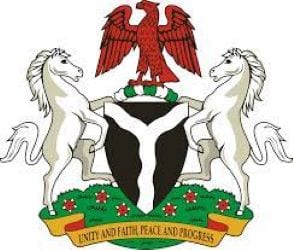Proffering solution to Nigeria’s economic crisis and to accelerate the country’s economic growth, experts have said Nigeria needs to pay adequate attention to 10 priority areas, strengthen the disbursement and accountability framework of the Central Bank of Nigeria (CBN) funds among others.
The experts, which include Partner and Chief Economist at PwC Nigeria, Andrew Nevin; Chief Economist of Coronation Merchant Bank, Chinwe Egwim; MD/CEO, Financial Derivatives Company, Bismarck Rewane, and Executive Secretary/CEO, Nigerian Investment Promotion Commission, Ms. Yewande Sadiku, made the disclosure at the recent Nairametrics’ Economic Roundtable, themed, ‘How to Get Out of This Economic Crisis.’
READ ALSO: IMF: Nigeria Records $85.21bn As Net Foreign Liabilities
Nevin pointed out that though Nigeria is rich, its dead assets remained a major bane to its economic growth. He described dead asset as unregistered real property that is considered as lost value because the landholder is unable to transfer or leverage the property to borrow or access capital. The areas, according to the economist, are unlocking Nigeria’s vast dead assets to stimulate growth, harnessing the power of the diaspora, driving export growth through services.
Others are improving on the business environment; ease of doing business; addressing Nigeria’s big three distortions such as exchange rate, power, and subsidies; shifting focus from the Gross Domestic Product (GDP) lens to sustainable development goals, and prioritising climate change.
Nevin added that finding the political will to act and unlock Nigeria’s dead real estate assets would have a transformative impact on the lives of Nigerians.
In his own contribution, Rewane said the simple solution for Nigeria’s economic challenges, would be to stop doing dumb things, and start doing smart things as running a deficit is not inherently bad.
He explained that the fact that the government is running a fiscal deficit is not a bad thing in itself because it could be a countercyclical move, which is in line with the Keynesian school of thought, meant to stimulate growth in a recessive period.
Rewane said, “The question is whether your deficit is giving you the economic outcome or is just a deficit in numbers,” He added that fiscal policy debate would be centred on the revenue generated, which may be good, but advised that more attention should be called to the way the revenue is spent on improving the welfare of Nigerians.
Speaking further, Rewane drew attention to the exchange rate, stating that Nigeria is moving in the right direction very slowly. “Questions about the high exchange rate are not important but what should be the core issue should be the performance of Nigeria relative to its trading partners. “A market-determined exchange rate is possible,” he stated.
Speaking about the importance of capital inflow in terms of investments in driving economic growth, Sadiku explained that though global capital inflow had been under pressure since 2011 in Nigeria, the most populated black nation is not resting on her oars.
According to her, between 2011 and till date, the only year we experienced a hike in capital inflow was 2018.
She said, “Investors are very brave but the capital they carry is cowardly”. Capital goes where it is not threatened and where it is comfortable. The greatest antidote to the cowardice of investors-money is confidence.
“Government is doing some work on the ease of doing business in Nigeria but the decline has been going on for so long. The movement of capital is subject not only to the competitive advantage Nigeria has but also to comparative advantage. The job of looking for investors can’t be left for an agency but should be collective efforts.”
According to Sadiku, “Investors are concerned about security, corruption, exchange rate, policy instabilities and arbitrary regulatory functions and the government has been building blocks that need to be in place and there needs to be an acknowledgement that it will take a while.”
Nairametrics is a Business News, Research and Investment Analysis website based in Nigeria, Africa’s largest economy. The website is owned by Nairametrics Financial Advocates Ltd, a Nigerian based company. Nairametrics periodically organises quarterly roundtable/outlook discussions with industry experts to analyse the macro-economic environment.

